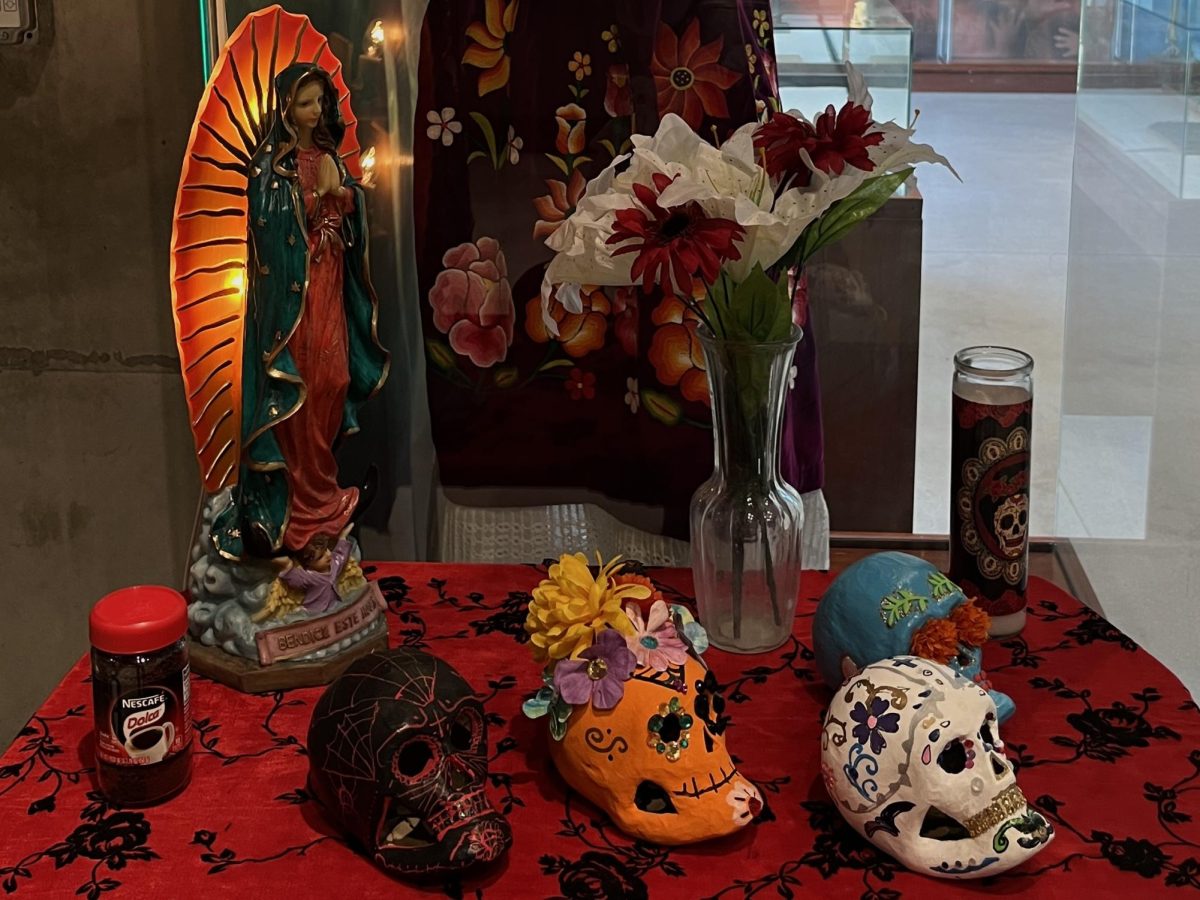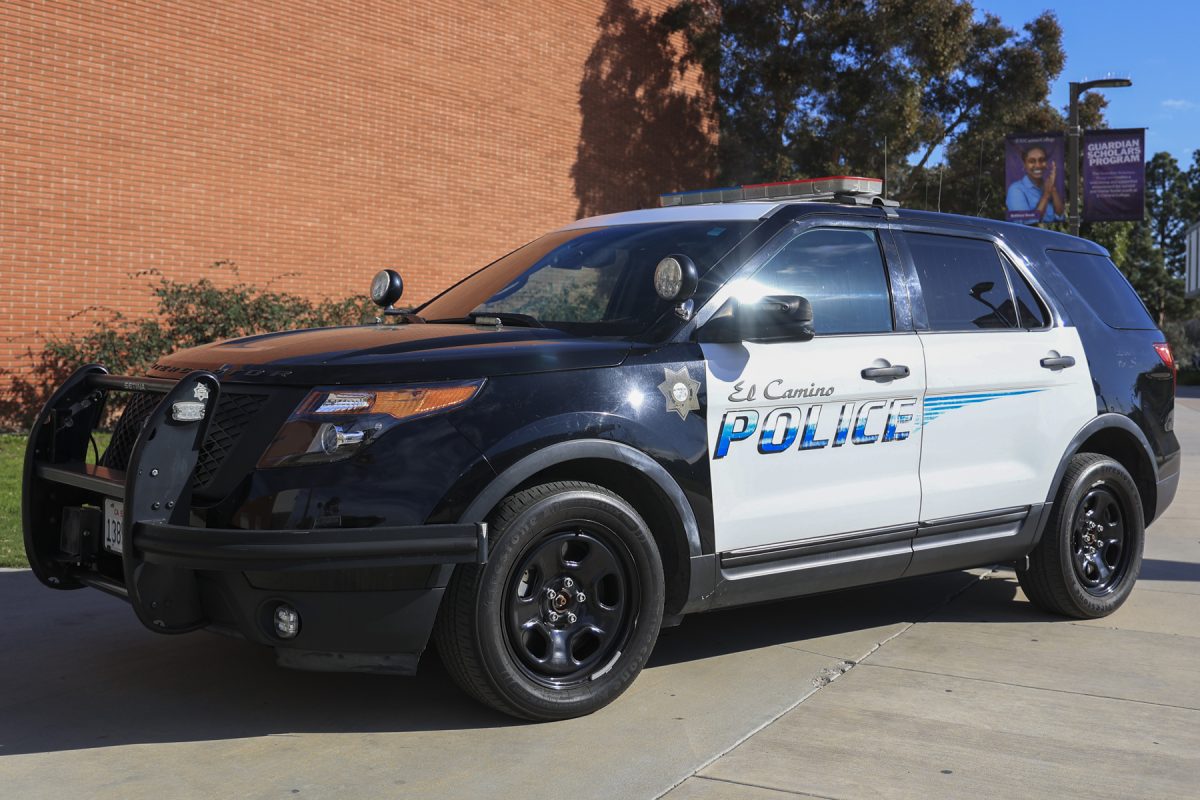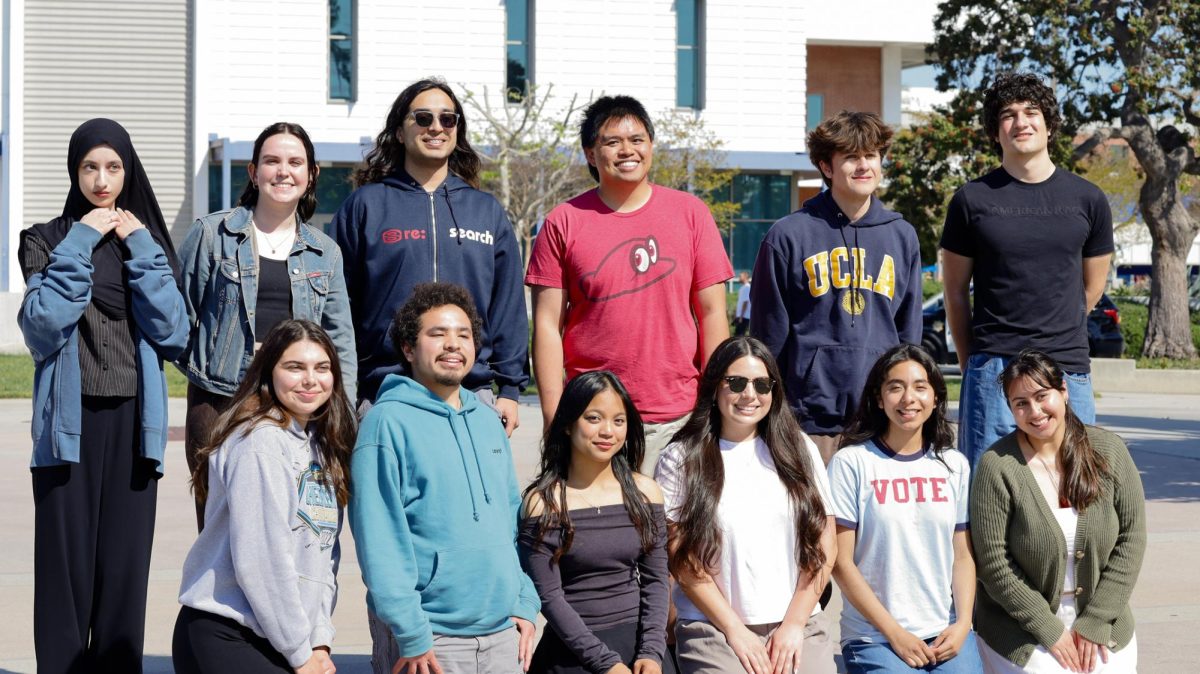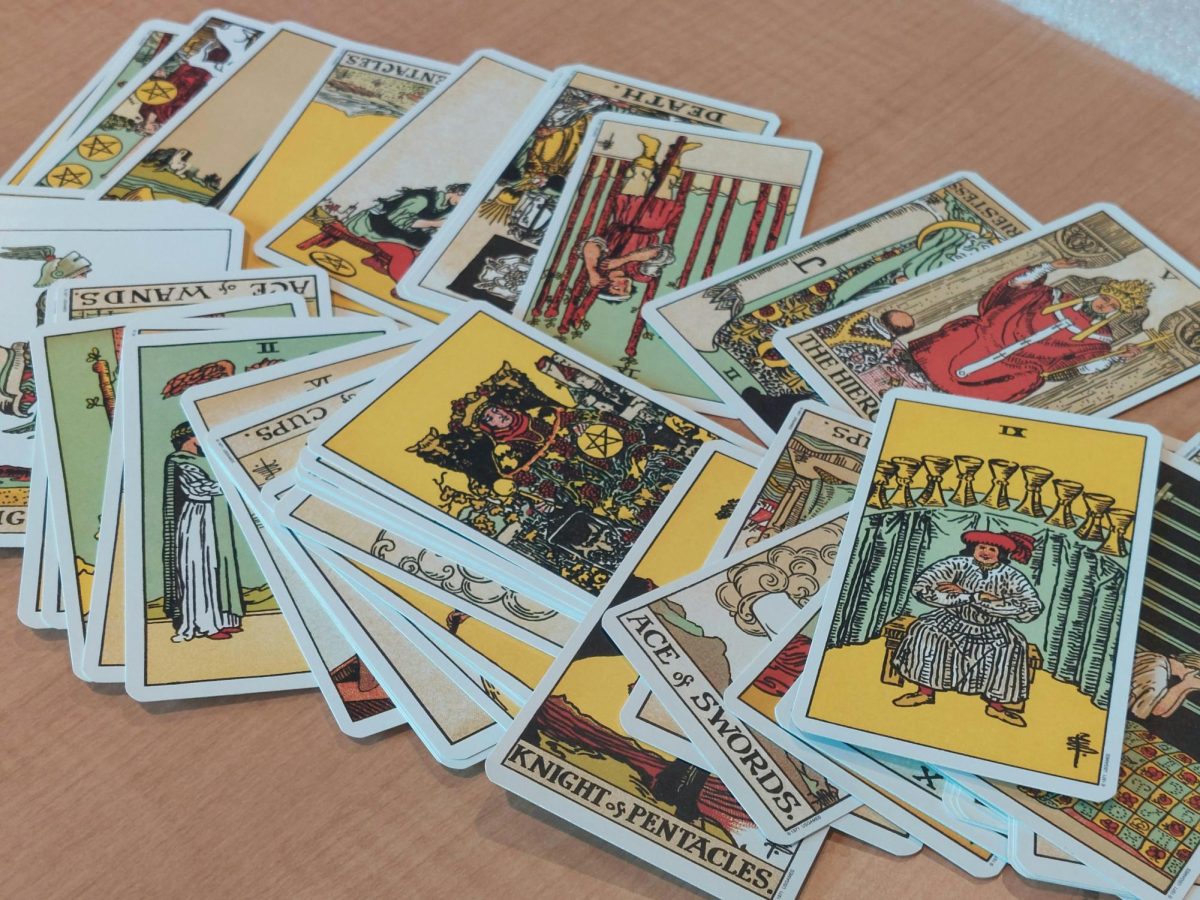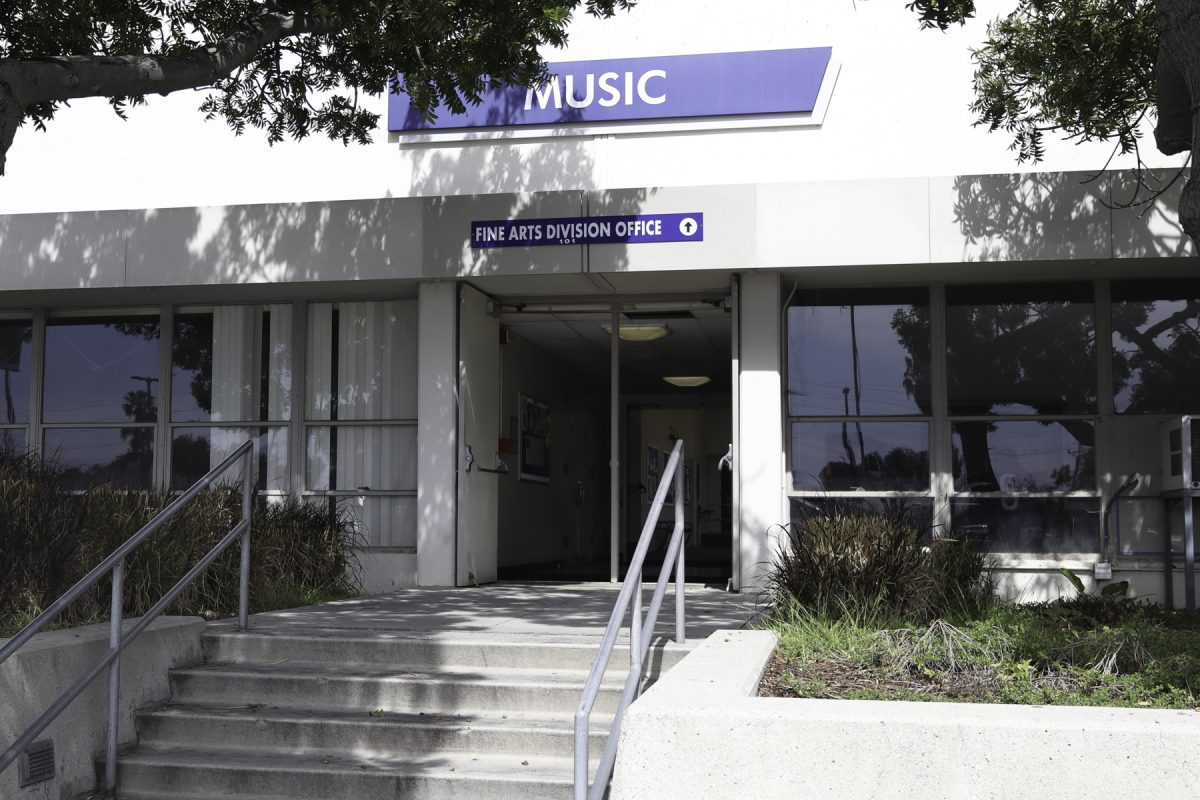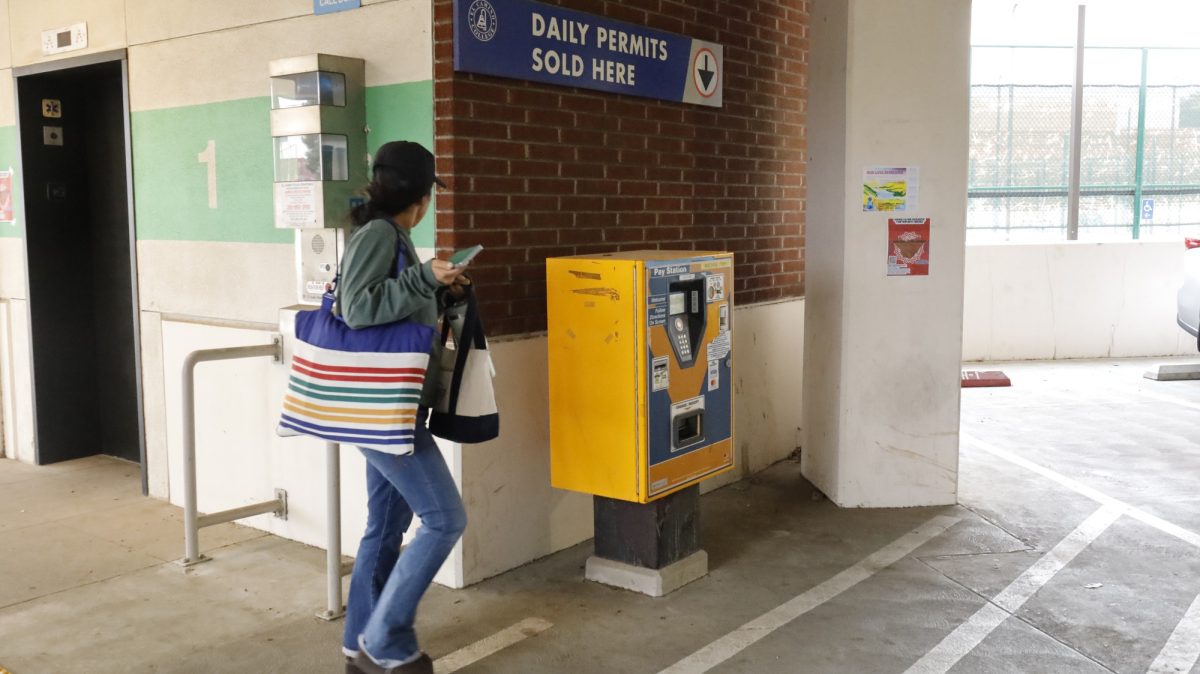Class closures at El Camino College have resulted in all on-campus classes being moved online, including arts classes, which rely heavily on hands-on activity.
When the Safer At Home order was implemented by Los Angeles mayor Eric Garcetti, it outlined that all entertainment venues, including theaters, among other non-essential businesses, are to be temporarily closed to reduce the spread of coronavirus (COVID-19) in California.
“The El Camino theater was one of the last theaters open in the South Bay,” Shane Barley, 18-year-old ECC nursing major said. “Once that closed a lot of people knew that this was going to be our last weekend and that our work that we spent months on was going to end.”
Theatre 184, or Stagecraft, is a class offered at ECC which primarily involved setting up the musical “The Who’s Tommy,” which only had a handful of performances until being shut down due to the Center for the Arts’ season cancellation.
“[Theatre 184] was only three weeks and we were able to run the show one weekend, we were told that we were going to get credit through that,” Barley said.
Although the new lack of hands-on class times will likely impact arts students academically, it has also affected them emotionally according to Barley.
“[It affected] peoples’ emotion and outlook on the situation because it was the last thing [left] and a lot of peoples’ work ended too,” Barley said.
For acting students, campus closures make it difficult to communicate with instructors in order to get comprehensive feedback.
“My acting class has been moved online which means that I can’t do scene work anymore,” Daichi Marian, 20-year-old ECC theater major said. “The entire class has to change which is really disappointing because the entire class is based on scene work and getting feedback from the entire class in a hands-on way.”
According to students in the Applied Music program, the inability to perform has presented some challenges to their learning experience as well.
“The whole point of Applied is to apply yourself in front of a live audience so it’s a lot more difficult. The nerves aren’t the same and it’s good to have those nerves when you go up in front of the actual audience, so it’s a lot more difficult especially if you don’t know how to use technology,” Violet Howes, 21-year-old Applied vocal performance major said.
For band students as well, the transition is bittersweet.
“I’m pretty bummed about it because that’s the only thing we get to do is that one performance and everything leads up to that very last performance. That’s kind of the whole reason we were having the class is for that specific performance which is why it kind of feels like the whole semester is just going down the drain,” 19-year-old communications major, Pearl Saffery said. “At least we’re getting to perform that music next semester so it’s not completely going to waste, it’s just postponed.”
It can also be hard to stay motivated while studying from home during self-quarantine.
“I have definitely lost motivation now that I’m not leaving because I can just stay in bed all day and do whatever I want and I have all day, especially in the beginning. This week I’m more stressed because of that,” 19-year-old music major, Madison Bonillo said.
In addition to a loss of motivation and experiences, students also miss the connections they formed with their peers inside their respective musical groups.
“[Performing] is something we used to bond in a way. Especially last semester, everything we did was a new opportunity to be together. It’s something that, as a performer, you look forward to, showing what you’ve worked on and how you grow over time so that is a little upsetting but we’re trying as hard as we can,” Bonillo said.
According to Berkeley Price, Dean of Fine Arts at ECC, the college is working to accommodate both students and faculty.
“The efforts of the college and all of the employees are in the right place, to try to help everybody get through this,” Price, said. “We are doing the very best we can, taking it step by step.”
ECC has given flexibility to professors in order to instruct in whatever way is best for students to learn for the rest of the semester, ECC also suspended instruction briefly after the closure of campus to help instructors set up classes remotely, Price said.
“[El Camino] is doing everything that we possibly can under the circumstances, but no one was truly prepared for something of this nature,” Price said.
To try and combat that music students are not able to have access to in-person musicians, there is a software program called “Smartmusic,” which allows students to have recordings of a full band excluding their part so students can practice along, music students have access to this software until the end of June, Price said.
Fine arts classes that involve painting, sculpting and studio arts have been facilitated by professors who have checked out equipment to transition to online learning.
“There are materials and there are hands-on aspects to many of the fine arts classes,” Price said, ”I’m very proud that many professors checked out supplies for students and set up places in their garages or living rooms to teach these hands-on classes online.”
Professors are implementing unprecedented class changes to keep students engaged and make sure they’re still practicing and learning.
“I am keeping them motivated by having Zoom sessions where I invite them into discussions and give positive reinforcements and discuss [the music] and we do that at least once a week,” Director of Chorale activities at ECC, Joanna Medawar Nachef said.
In order to end the semester with a final showcase of their work despite COVID-19 related closures, choirs at ECC are planning on creating a virtual choir. The various choirs still meet regularly to practice singing via online conference call to “move on and create our own versions of virtual choir,” according to Nachef.
Virtual choirs have been done before, for example, in 2011 Eric Whitacre created one singing his work “Sleep” that included 2052 voices. Since then, his technique has been replicated by choirs around the world.
Even with the technology to create a virtual choir, the experience will not be the same as in-person classes used to be. However, they’re still collaborating to make things work.
“It’s not going to be the same, these classes are meant to be skill building classes that are in person,” Nachef said. “The choir is like a team sport, this morning it was wonderful, we teamed up virtually and came up with creative ideas together.”
For Dane Teter, Director of Instrumental Music at ECC, Teter is using this semester as extra time to work on pieces that are set to be performed next semester.
“I’m looking to the future. I’m finding new pieces of music, getting new literature suggestions is part of that. I get to explore new things and then get student feedback before we ever get there,” Teter said.
Professor of Theater at ECC, Bill Georges, had to alter his classes as well to be able to teach acting in an effective way.
“When preparing a class it takes hours of work, for me it has been for having to prep all over again,” Georges said.
The Performing Arts at ECC are all feeling the impacts of COVID-19, but they continue to persist.
“For me, I could have easily cancelled the performance classes, that was an option, but I chose not to because I really feel I can push myself to grow and give the students a new learning experience, it is going to be altered, it is going to be different, but why not?” Nachef said.




